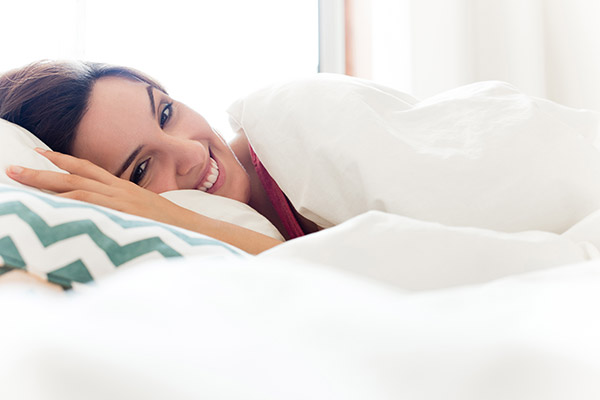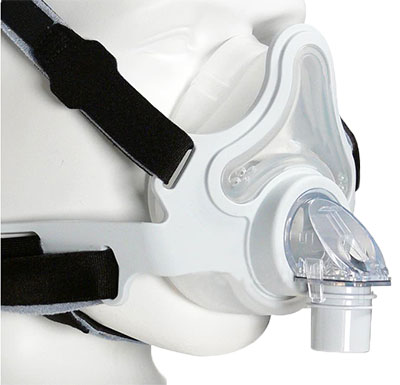Managing sleep apnea symptoms is key to improving your overall health and wellness. Many of our patients tell us that they’re not satisfied with their CPAP machine. That’s why we offer a number of alternatives for treating sleep apnea to help manage your symptoms, allowing you to get a great night’s sleep every night.
At Regina M. Dailey DMD, DABSDM, our team works with your physician to ensure your treatment and management strategies are as effective and cohesive as possible. While there are a number of ways to treat sleep apnea, not every solution works for every patient.
During your consultation, we’ll discuss your options and help you find the ideal treatment for your lifestyle. When it comes to recommending treatment, our goal is to ensure you can sleep comfortably without interruption.


Treatments Options to Fit Your Lifestyle
Thanks to greater awareness about sleep apnea, there are now a number of treatment options available for our patients. Non-surgical options such as Continuous Positive Airway Pressure (CPAP) devices and oral appliances remain the most popular solutions for patients.
CPAP Isn’t for Everybody
A CPAP machine keeps the airway open while you sleep by blowing a continuous stream of warm air into a mask that attaches to your face. It’s a very effective treatment for sleep apnea, but many patients stop using their CPAP machine because they find restrictive and inconvenient.
CPAP limits patient movement by forcing you to sleep on your back. That’s why patients who move around a lot when sleeping or those who don’t usually sleep on their back have an especially hard time adapting to CPAP.
Others find that the noisy CPAP machine is distracting to both patients and their bed partners. Also, if you want to get up during the night, you have to completely unhook your CPAP machine and then reattach it when you get back to bed. All of these factors contribute to CPAP’s high noncompliance rate.

Treating Sleep Apnea with Oral Appliances
In recent years, oral appliances like mandibular advancement devices have become more popular options for individuals with mild to moderate sleep apnea who find themselves unable to use CPAP consistently.
Mandibular Advancement Devices
A mandibular advancement device (MAD) effectively treats sleep apnea and minimizes snoring. The device works by moving the mandible, or lower jaw, forward to keep the airway open while you sleep. Ultimately, this retainer-like device helps facilitate nighttime breathing without requiring a mask or a noisy machine. That way, you’ll be able to breathe freely and get a good night’s sleep.
At Dr. Dailey’s Ann Arbor office, she’s helped countless patients regain a full night’s rest with mandibular advancement devices. She understands that every patient has unique needs, and looks forward to meeting you and discussing the best options for your case.
Sleep apnea oral appliances available at Regina M. Dailey DMD include:

Panthera X3

Panthera D-SAD Classic

EMA
The EMA is an option for patients who would like a more temporary or economical option.
Frequently Asked Questions
What is the best treatment for sleep apnea?
What are the warning signs or symptoms of sleep apnea?
- Loud snoring
- Drowsiness while driving
- Restless sleep
- Waking with a choking/gasping sensation
- Waking with a dry/sore throat
- Sleepiness or lack of energy during the day
- Morning headaches
- Forgetfulness and mood swings
- Decreased libido
The best way to find out if you have sleep apnea is to undergo a sleep study. Sleep studies, whether conducted in a facility or at home, will record data such as oxygen levels, brain activity, and muscle movement, and a physician will be able to determine if you have sleep apnea. Once diagnosed, your physician will refer you for oral appliance therapy or other necessary treatments.